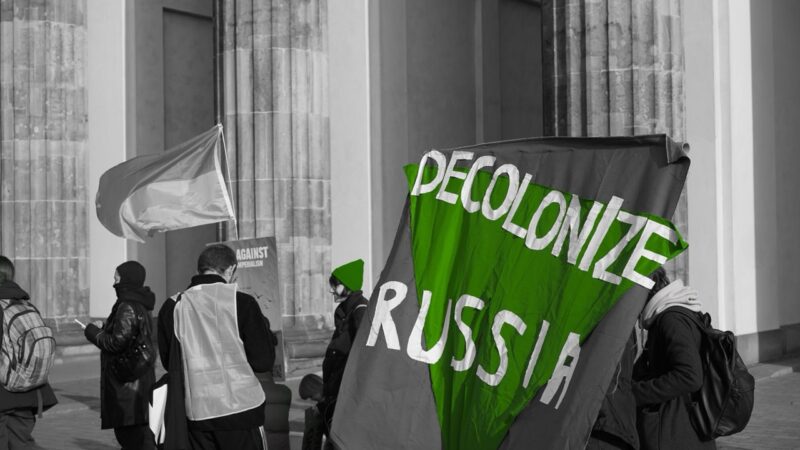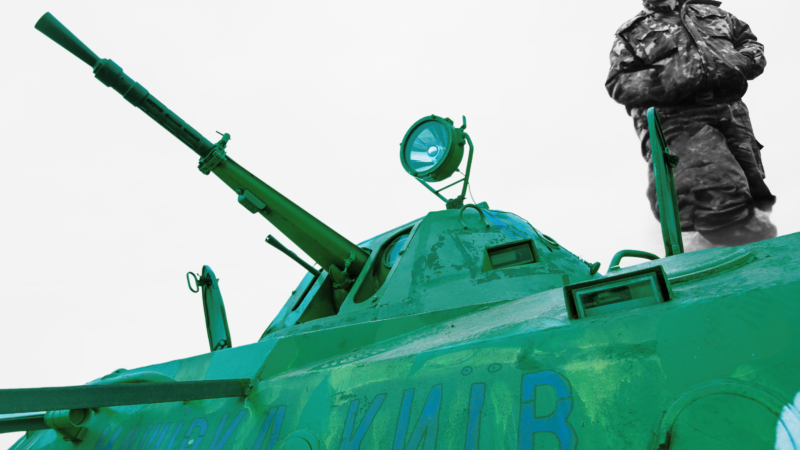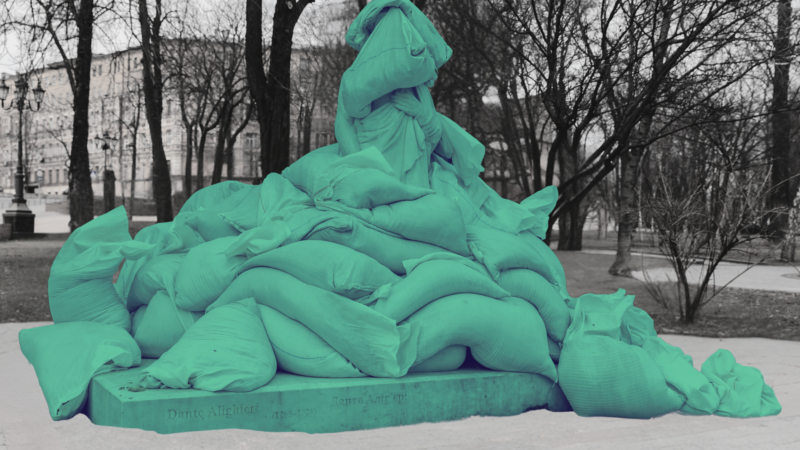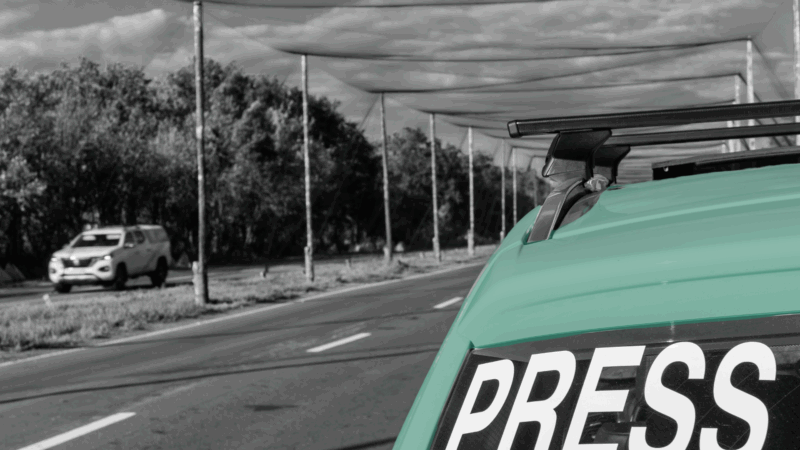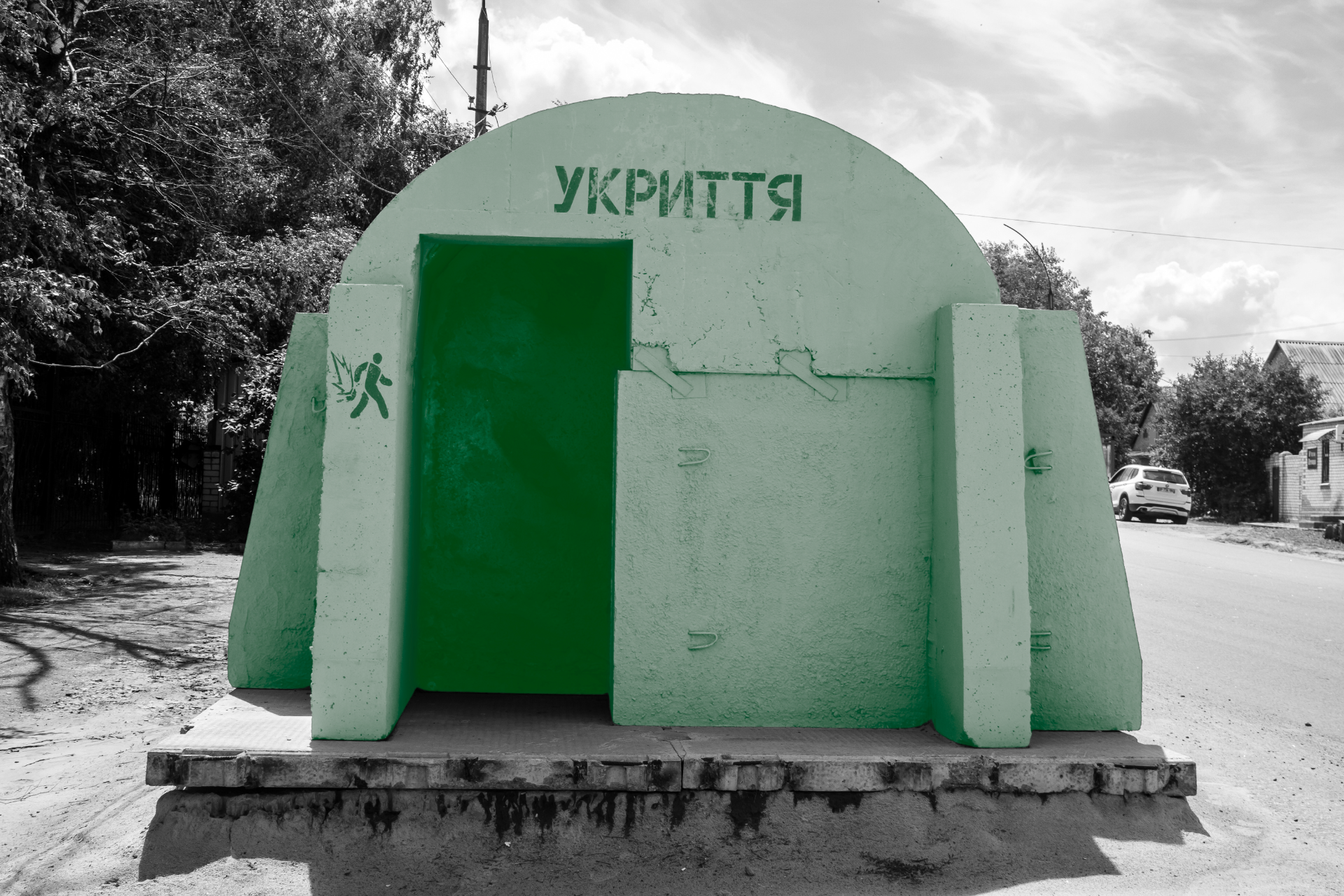Interview with Catherine Wanner | Recent Reflections on the Consequences of Russia’s Full Scale Invasion of Ukraine
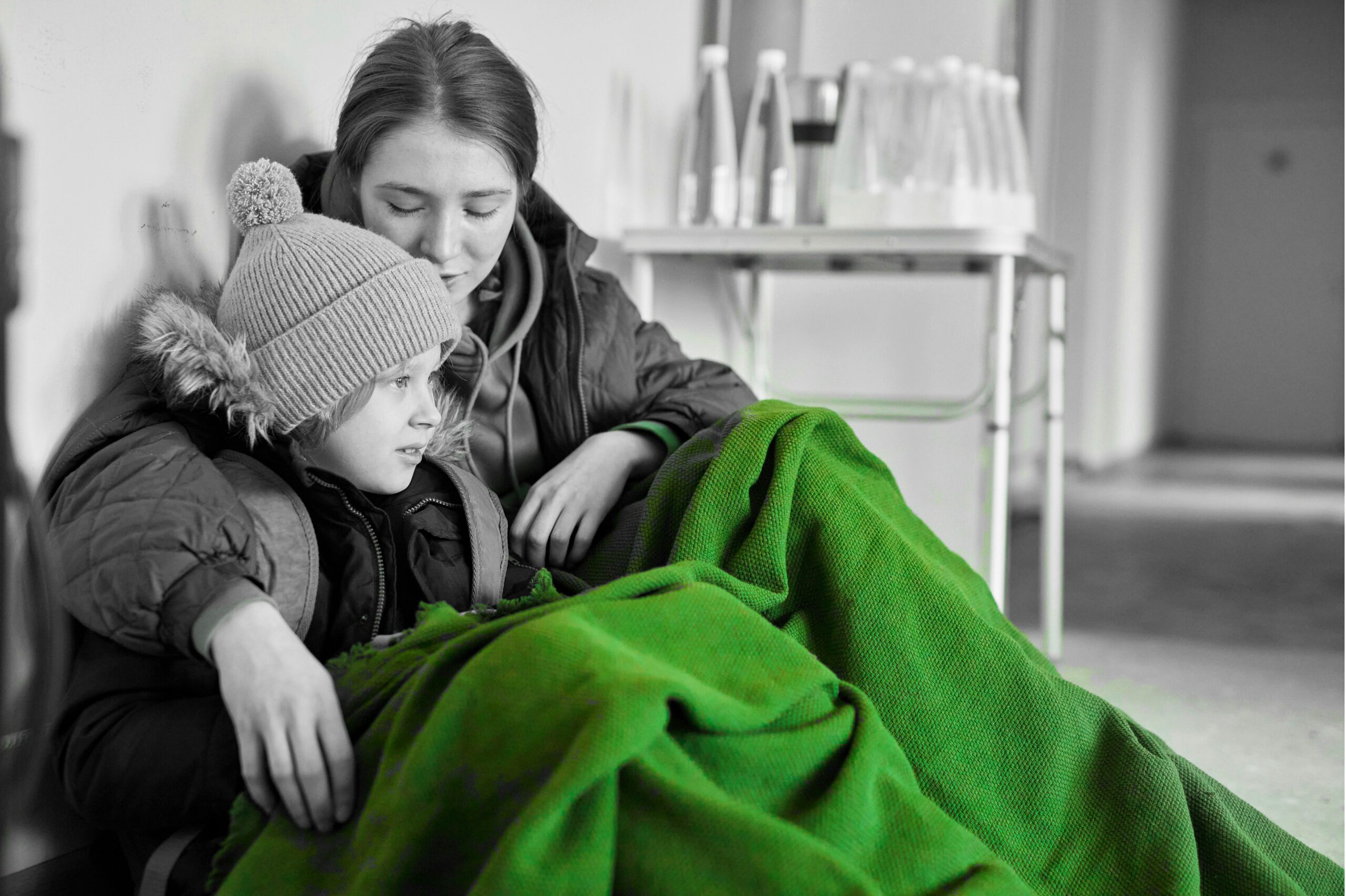
Oleksandr Pankieiev: You recently edited a book of articles authored by a group of distinguished scholars that explore different human experiences of Russia’s war against Ukraine. You used the concept of dispossession to thematically connect the book’s articles and describe the war’s consequences on Ukrainian society. What drew you to this concept, and why did you decide to use it for this collection?
Catherine Wanner: On one level, I was very committed to documenting all that has been lost—certainly human life, buildings, and infrastructure. But I also wanted to document the implications of that destruction. In other words, when you destroy buildings, you are also destroying neighbors and neighbourhoods; you are destroying a person’s sense of belonging, familiarity, and everyday routines. When you destroy infrastructure, you destroy where and how people go to certain places and their ability to interact and maintain friendships. I wanted to document the things that have been lost that are less visible, like neighborhoods and friendships, that are very meaningful and will be far harder to reconstruct than the material losses..
The concept of Dispossession evokes what is lost or taken. What is often overlooked is that among the destruction are sometimes the barriers to change. The impediments to change can also be destroyed when a people is dispossessed. In the beginning of the war, there was a lot of discussion about the resilience of Ukrainians. The war ushered in a tremendously creative period. I wanted to explore the sources of this resilience and the remarkable innovation that grew as the war progressed. However, I also wanted to firmly situate the possibilities for that resilience and cultural innovation within a context of loss and the grieving that comes from that loss. Dispossessive loss exists on multiple levels, not just material objects, the immaterial things that make social life possible as well as the barriers to change.
Dispossession as a concept helps us to see the innovation that is happening in Ukraine in a new light. Dispossession has been especially used in studying native communities, particularly in North America, where we see how a kind of slow and grinding colonization can occur, often referred to as settler colonialism. We see the ways in which cultural change can be directed and even orchestrated in a way that makes it very difficult to resist assimilatory and dispossessive pressures. The concept of dispossession allows us to tie Ukraine into other kinds of colonial and political structures and show the means by which Ukrainian peoples’ lands, languages, and cultural traditions have been taken from them. In this sense, dispossession allows us to compare Ukraine with multiple other colonial contexts.
Pankieiev: Your answer leads to my next question. War is always a moment when identities manifest themselves more strongly. What identity changes have you observed in Ukrainians since the beginning of the full-scale invasion of Ukraine?
Wanner: In 1969 an anthropologist named Fredrik Barth wrote about how groups inevitably form boundaries. To the extent that boundaries contribute to establishing and articulating a form of identity, these boundaries and identities that grow out of them inevitably form in relation to another group or groups. The war has very sharply identified Russia, Russians, and all things Russian as a measure against which Ukrainians identify themselves. After the full-scale invasion began, many people’s reactions were to use this rejection of Russia and Russians as a way of fortifying and articulating very firmly a Ukrainian identity. This is how I understand why so quickly, so many people—certainly in public but even now in private—have begun to speak Ukrainian; even if they previously spoke Ukrainian, they now speak it exclusively on principle. This is one way in which you see a rejection of things Russian as a means of expressing allegiance to all things Ukrainian, including Ukrainian sovereignty, statehood, and nationhood. It is also a means for each person individually to protest against this war. Language choice was always political, but now even moreso.
Pankieiev: Some use the metaphor of a war of identities to describe Russia’s war against Ukraine. What are your thoughts on this metaphor?
Wanner: As someone who focuses on religion, I am not certain that “a war of identities” accurately reflects the situation. On the Russian side, the concept of the so-called Russkii mir [Russian world] is at once quite defined but also quite amorphous. It is tied to power: who has it and who is subordinated to it—which is, by and large, a far more powerful motivator for Putin than making Russians per se. What he desires is to make the Russian world—a political space with Moscow at its center. Of course, this political project is facilitated if you can encourage or force people to adopt a “Russian” identity. However, I do not think that making Russians or making people feel an allegiance to the Russian Orthodox Church is the primary goal. It is more about creating a political space with Moscow at its center.
Pankieiev: You have mentioned religion and church; what is the role of religion in this war?
Wanner: One could argue that there is something of a proxy war occurring at the level of religion—and I might add that I am keeping a very sharp eye on developments in the religious landscapes of other former Soviet republics turned independent countries, where it seems to me parallel developments are underway. Once again, going back to the political project that I mentioned with Moscow at its center, we see the extent to which Patriarch Kirill has become Mr. Putin’s altar boy, to use the Pope’s phrase. In other words, Patriarch Kirill is not only an enthusiastic supporter of this war, he has also gone to great lengths to try to justify and legitimize it, and he then uses that justification to motivate people to serve in the Russian war effort.
Similarly, there is an effort on the part of the Russian Orthodox Church to promote its agenda of so-called traditional values. Here, once again, we see that Patriarch Kirill is quite an enthusiastic supporter of very traditional gender and sex-based roles and identities. He has been effective, to a degree, in terms of promoting that social agenda into a certain kind of political culture and using Orthodoxy as a means by which to posit that Russia could be a protector of those particular values against the encroaching influence of more liberal values, specifically as concerns gender and sex. Russia then can posit itself as something of a bulwark against what might be perceived on the ground as unsavory European influences. Whether one speaks of Ukraine, Moldova, Georgia, or other places—this could be seen as a genuinely attractive proposition.
Pankieiev: You co-authored an article on empathy as a powerful tool in this war. Considering that Russian propaganda targets our emotions and elicits all kinds of reactions from us, what is the role of all of these emotions and feelings in this war?
Wanner: This is one of the hardest questions. War unleashes high levels of sorrow, grief, anger, and rage, and sometimes the line separating grief and rage is very fine. It is important to note, and I remind myself of this frequently, that this war will end—all wars end, and this one will end too—but the end of this war will not necessarily mean peace. Initially, the war’s end might mean at least a cessation of active combat and the kind of horrific bombing that a good part of Ukraine is subjected to daily, not to mention all of the other inconveniences like no electricity and limited heat that are the result of an assault on civilian infrastructure. While that might end, it is very difficult for people to simply turn off the high levels of stress, anger, and instinctive reaction to fight or flee—that the war cultivates. War foments hatred, and I do not think that we should wait until the active phase of this war ends to begin to cultivate empathy for each other as individuals.
This is necessary in all societies. I am in the United States right now, and it is a highly polarized society where we have two camps, if not more, that do not understand each other. I have worked very hard to lobby lawmakers in the US to support aid to Ukraine, including the latest package, which promises a lot of weaponry. Part of the process of lobbying for aid involved developing a certain kind of empathy that would allow me to see what was blocking Republican lawmakers from endorsing this aid. In order to make positive progress that will enhance social stability—whether one speaks about the United States or Ukraine—we must develop empathy so that people can understand each other. This is not easy. We can already feel, hear, and see pressing questions in Ukraine. Why did this war start? Who is to blame? Was it worth it? Are there sympathizers with Russia and the Russian world among us? And if so, how should we react to them? It is not surprising that people are asking these difficult questions. But in answering them, it is important to the greatest possible extent to keep a spirit of empathy alive, so that one can understand the perspectives of others and prevent further conflict and suffering in the war’s aftermath.
Sean Patterson: I want to explore further this question of how war produces feelings in people, or even full-blown identities, that attach themselves to narratives of violence and dehumanization. How do we concretely interrupt these narratives, or temper them, while killing is still a requirement for the defence of the country?
Wanner: For ten years, Ukraine has already been integrating people who have been internally displaced from the occupied territories, people who are now disabled as a result of the war, and people who are experiencing many forms of anxiety or depression. In short, this is a different kind of society now and, looking forward, will have. It is important to note that one of the extraordinary aspects of this war is that it has produced so many refugees and migrants, particularly women and children. Many have said, and I think there is quite a bit of truth to this, that the longer this war carries on and the more embedded those families become in other countries, the more likely it is that a certain number will remain there. All of this is to say that the Ukrainian people after the war—even now, but especially after the war—are going to be different compared to before the full-scale invasion.
One of the first things that must be rebuilt is the workforce; you will need more people. Although Ukraine has historically been a country from which people have migrated, it may very well become a country to which people migrate. In other words, there are going to be many changes in the future. In the best circumstances, this requires a certain acceptance of pluralism and a willingness to embrace tolerance. Before the full-scale invasion, Ukraine received very good marks in this respect, especially concerning religion and cultivating pluralism as a political and social norm and establishing tolerance of difference. Compared to the other parts of the former Soviet Union, with perhaps the exception of the Baltic countries, Ukraine scored far and away the highest on all those measures. Having said that, its level of pluralism and tolerance is challenged every single day by the hardships that this war continues to impose on the Ukrainian people.
Patterson: In your research, you describe a post-Soviet process of deepening religiosity coupled simultaneously with increasing secularization, which has contributed to forming an identity that is “Just Orthodox” (prosto pravoslavni). How has the war impacted those Orthodox, and what are your thoughts on the survival or continuation of this identity, given the polarizing effects of war?
Wanner: That is a great question. The phenomenon and informal types of religious and cultural practices that created the “Just Orthodox” remain by and large, although the number of people who claim to be “Just Orthodox” has melted away like snow on a warm day. This is because embracing a certain religious allegiance to a particular institution has become a means to indicate one’s political views. For most of the thirty-plus years of Ukrainian independence, many people felt an allegiance to the Eastern Christian tradition—spiritually, historically, aesthetically, and so on – over an allegiance to a particular institution. It fundamentally informed how they saw themselves. I think that is why so many people claim to be Orthodox even if they do not necessarily practice their faith.
Many scholars concluded that religion was unimportant because people did not adhere to the usual metrics of how we analyze religiosity, that is to say, by formally being a member or formally attending on Sunday morning. These kinds of metrics yield very low levels of participation, and many scholars and policymakers then extrapolated from this that religion was not really important in Ukraine. However, one of the reasons why I began studying the “Just Orthodox” was precisely because I saw it as being very important. I wrote a book which came out in 2022 that had the phrase “everyday religiosity” in its title—and one of the ways in which religiosity, primarily of an Eastern Christian nature, becomes meaningful is because of how it is embedded in aspects of everyday life—things like aesthetics and understanding one’s own and collective history. For these reasons, Orthodoxy matters.
Unfortunately, within the context of war, religion can be instrumentalized and manipulated precisely because it matters to people. The 20th century was riddled with attempts to establish a formally recognized autocephalous local church, but obviously, within the Soviet Union, that was impossible. We also saw efforts in the diaspora to create churches oriented toward Ukraine and Ukrainians. However, it took today’s heightened political tensions to have all of the dynamics come together to allow for the formation of the Orthodox Church of Ukraine. It took the context of the war to change attitudes enough to make this happen.
Patterson: Let’s turn to your current line of research, which concerns animals in the war. How did you come to this topic, and what insights might we as humans gain from understanding how animals experience war?
The book I am working on now has multiple goals. I want to contribute to gathering data that will lead to charging Russia with ecocide. It is an unfortunate parallel that after the Second World War, genocide was recognized as a war crime. Lawyers from Lviv were instrumental in shaping our thinking about genocide. An unfortunate legacy of the current war is that we will see efforts—and one hopes they are successful—to introduce ecocide as a war crime and to legally expand the ramifications of launching armed combat if there is significant harm to the flora and fauna of a particular region or country. The hope is that this will stem the kind of armed combat that we have been witnessing in Ukraine today that leads to tremendous environmental destruction. This is one goal of this book.
The second goal reverberates back to empathy. We sometimes empathize much more readily with animals than we do with humans, and sometimes people are more willing to hear about and react to the suffering of pets, zoo animals, wildlife, and livestock than they are about the unjust hardships humans are forced to endure. Yet, it does not take long before people understand that the suffering of animals, regardless of what kind, is really reflective of the suffering of the people who live with and around those animals. At times, we can hear and see things when it comes to animals that are harder to hear and see when they are told to us in terms of humans.
It is also important to take stock of how destructive war is. We know in the abstract that it is destructive, but when you start to speak in terms of various forms of non-human animal life, you see how destructive war is to water, the earth, the ground itself, the air, and other aspects of nature. It is my hope that people will be outraged by that and will be moved to insist that there be considerations of what any kind of military action might do to nature and the flora and fauna of a given area. Nature, as we know, does not respect borders. Flooding a dam, compromising agricultural production through soil contamination, or mining a sea will affect people in multiple regions. Active combat around a nuclear reactor threatens not just the ecology of Ukraine but the ecology of all surrounding areas. Harm to nature affects us all; I hope to communicate that by portraying how animals experience this war.
